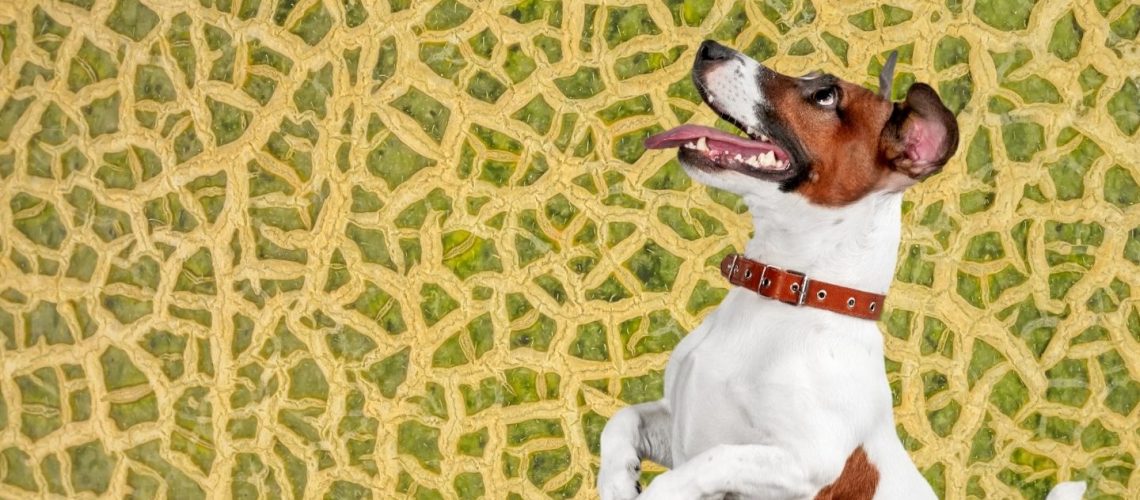Can dogs eat cantaloupe rind? The short answer is no, cantaloupe rind is not safe for dogs to eat. While cantaloupe itself can offer some nutritional benefits to dogs, the rind poses various risks, including digestive issues, choking hazards, and potential exposure to harmful bacteria.
Introduction
What is cantaloupe?
Cantaloupe is a popular and delicious fruit known for its juicy, sweet taste and refreshing flavor. It is a type of melon that belongs to the Cucurbitaceae family, which also includes other melon varieties as well as other fruits and vegetables such as cucumbers and squash.
Nutritional benefits of cantaloupe for humans
Cantaloupe is rich in nutrients like vitamins A and C, potassium, and antioxidants. It is also a good source of dietary fiber and water, making it an excellent choice for promoting healthy digestion and hydration.
Can dogs eat cantaloupe (excluding the rind)?
Yes, it is safe for dogs to eat the flesh of the cantaloupe in moderation. However, it's important to note that dogs should never be given the cantaloupe rind, as it can pose potential health risks.
Why is cantaloupe rind dangerous for dogs?
Insoluble fiber and dogs' digestion
What is insoluble fiber?
Insoluble fiber is a type of fiber that does not dissolve in water and is generally not broken down by the bacteria in the digestive system. It is found in foods like whole grains, fruit skins, and some vegetables.
How do dogs digest insoluble fiber?
Dogs' digestive systems are not well-equipped to handle large amounts of insoluble fiber, which can cause issues like bloating, excessive gas, and diarrhea when consumed in excessive quantities.
Potential digestive issues caused by insoluble fiber
Some of the digestive issues that can be caused by insoluble fiber in dogs include:
- Bloating
- Gas
- Diarrhea
Choking hazards and intestinal blockage
Factors that contribute to choking hazards
The hard, thick texture of cantaloupe rind can be difficult for dogs to chew and swallow, increasing the risk of choking, particularly for smaller dogs or those that eat quickly.
Symptoms of intestinal blockage in dogs
If a dog swallows a large piece of cantaloupe rind, it can become lodged in the digestive tract and cause life-threatening blockages. Symptoms of intestinal blockage include:
- Vomiting
- Loss of appetite
- Lethargy
- Abdominal pain
Treatment options for intestinal blockages
If you suspect your dog has an intestinal blockage, it is crucial to contact your veterinarian immediately for appropriate treatment, which may include surgery in severe cases.
Harmful bacteria and mold on cantaloupe rind
How harmful bacteria and mold can develop on the rind
Cantaloupe rind can harbor harmful bacteria and mold, particularly when left at room temperature or exposed to moisture. These microorganisms can cause food poisoning in dogs.
Symptoms of food poisoning in dogs
Signs of food poisoning in dogs include:
- Vomiting
- Diarrhea
- Loss of appetite
- Lethargy
- Fever
Prevention and treatment of food poisoning in dogs
To prevent food poisoning, always properly store and dispose of cantaloupe rind. If you suspect your dog has ingested contaminated rind, contact your veterinarian for guidance on treatment options.
Safe alternatives to cantaloupe rind for dogs
Dog-friendly fruits and vegetables
Safe and healthy fruits and vegetables for your dog include:
- Apples (without seeds and core)
- Blueberries
- Carrots
- Green beans
- Watermelon (seedless and without rind)
How to properly prepare fruits and vegetables for dogs
- Wash produce thoroughly to remove pesticides
- Cut fruits and vegetables into appropriate sizes for your dog
- Use safe cooking methods (if necessary), such as steaming or boiling
What should you do if your dog accidentally eats cantaloupe rind?
Monitoring your dog for symptoms
If your dog has ingested cantaloupe rind, closely monitor them for any signs of distress or discomfort. Seek veterinary advice if your dog exhibits symptoms such as vomiting, diarrhea, or lethargy.
Preventing future incidents
To keep your dog safe, always dispose of cantaloupe rind properly and educate family members and guests about the potential dangers to your pet.
Conclusion
Understanding your dog's dietary needs and restrictions is crucial to providing a balanced and safe diet for your furry friend. Avoid feeding cantaloupe rind to your dog and instead opt for dog-friendly fruits and vegetables. By doing so, you can help ensure the health and well-being of your beloved pet.











